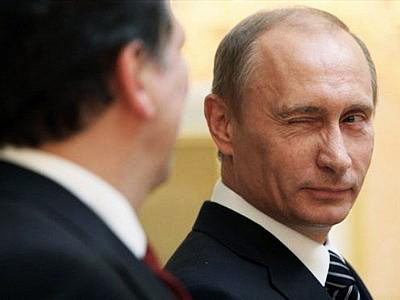One may well ask, as Jonathan did today: doesn't Putin remember his own 2008 "intervention" in Georgia?
Putin sidesteps the cognitive dissonance here through a (certainly willful) misinterpretation of the "norm" of "Responsibility to Protect," (R2P) a UN initiative that is supposed to bind member states to protect their citizens from war crimes, genocide, crimes against humanity, and ethnic cleansing. As International Crisis Group chair Gareth Evans detailed in 2009, Putin's Georgian adventure didn't even come close to fitting the bill.
Interestingly, R2P was expressly used in UN Resolution 1973, which paved the way for NATO's intervention in Libya. Russia (and China, and Germany, among others) abstained from the Security Council vote that time.
Obama didn't bust out express R2P arguments in last weeks' address on potential military action, but just like with Libya, and especially now with Samantha Power as the US Ambassador to the UN, those arguments are the foundation upon which the prospect of intervention is built.
Putin, for his part, does say that if UN investigators find conclusive proof that Assad used chemical weapons, Russia wouldn't "exclude" the idea of approving military action at the UN. Without UN approval, though, any other justification would be "unacceptable," presumably in a way that the unapproved Georgian intervention was not.
Such are the vagaries of an international law regime in which everyone (the US included) is picking and choosing their own norms.

No comments:
Post a Comment